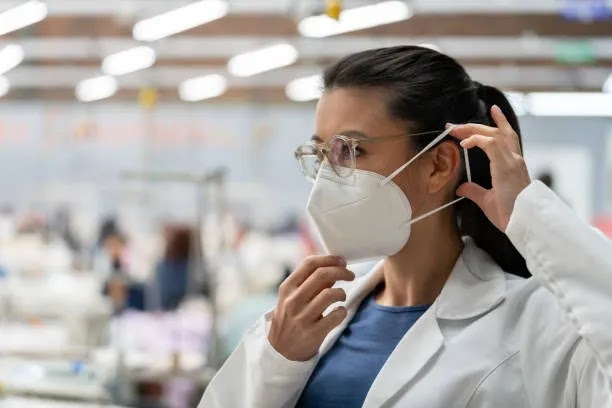"There are still 150,000
hospitalizations, 2,000 deaths, and approximately 700,000 infections..."
As the Omicron surge—still responsible for a record number of
cases and hospitalizations—flames out, COVID cases are finally peaking in half
of the country. But how are you going to stay safe? And what is going to happen
next? Dr Anthony Fauci, the President's chief medical advisor and director of
the National Institute of Allergy and Infectious Diseases, appeared on MSNBC
alongside Jose Diaz-Balart. Continue reading.
1. Dr Fauci Said Here's When it Would be Acceptable to "Live
With COVID" (Answer: Not Yet!)
"When you think of viral outbreaks, you have a pandemic, and
then it slows down, you might get a feeling of control," Dr Fauci said.
"It's possible that you'll be able to get rid of it, if not eliminate it.
I don't believe there's a chance we'll be able to eradicate this. We've only
done it once, with smallpox, thanks to some significant and effective vaccine
campaigns in our country. Besides an odd outbreak in an under-vaccinated
population, polio and measles have been eliminated. So, rather than elimination,
I believe we'll see a level of control that allows it to mix in with the common
viral infections we deal with—parainfluenza, flu, and respiratory syncytial
virus. Living with COVID would be an acceptable quote if we could get it down
to a level where it doesn't challenge us and us from a public health aspect,
but not at the current level since we still have 150,000 hospitalizations,
2,000 deaths, and roughly 700,000 infections. That's far too much to accept,
much less even live with. We need to get far, much lower than that. Then I
believe it would be acceptable to continue along with society without being
disrupted."
2. Dr Fauci Said Here's Where in America Omicron is Rising and
Falling
"Well, if Omicron....it peaks and falls if it turns out to be
the dominant variant at a low level in the community, which is certainly one of
the possibilities," Dr Fauci explained. "We're seeing it peak and
fall in cities like New York and the upper Midwest, but we still have an issue
with it in the Southern states." "As well as a few Western
states."
3. Dr Fauci Said This About When to Expect a New Variant
"We don't know," Dr Fauci said. "I'd have to be
entirely honest. You can guess, but we don't know what happens when you have
waves of this. We don't know if there's enough background immunity after a
while, whether from infection plus boost up vaccination plus boost, or just
plain infection and recovery from infection. When you put it all together, you
could have a level of immunity in the community, which means that even if new
variants develop, they won't have the same surge effect as the four or five
surges we've seen since early 2020, "he stated "So I don't think
we'll be seeing that for a long time. I believe it will continue to decline.
And, quite honestly, the more individuals who get vaccinated and boosted, the
less likely it is that we will see the return of variants that continue to pose
a danger."
4. Dr Fauci Said This About an Omicron-Specific Vaccine
"Omicron appears to have peaked in various areas around the
country," Diaz-Balart added, "but we're simply testing out an Omicron
vaccine right now." Pfizer is working on a vaccine against Omicron.
"Why?" "What the company is hoping to achieve is that if it does
become the low-level dominant variant, you'll want to protect people from
diseases and possibly increase them. It makes sense to consider having an
Omicron-specific boost on hand at all times. We may not need it....but I
believe it is prudent to plan for the chance that this may be a chronic variant
that we will have to deal with, even if it is at a superficial level. As a
result, they're moving forward."
5. How to Stay Safe Out There
Get vaccinated or boost your vaccinations as soon as possible; if you live in an area with low vaccination rates, wear an N95 face mask, avoid large crowds, don't go indoors with people you aren't sheltering with (especially in bars), practice good hand hygiene.






